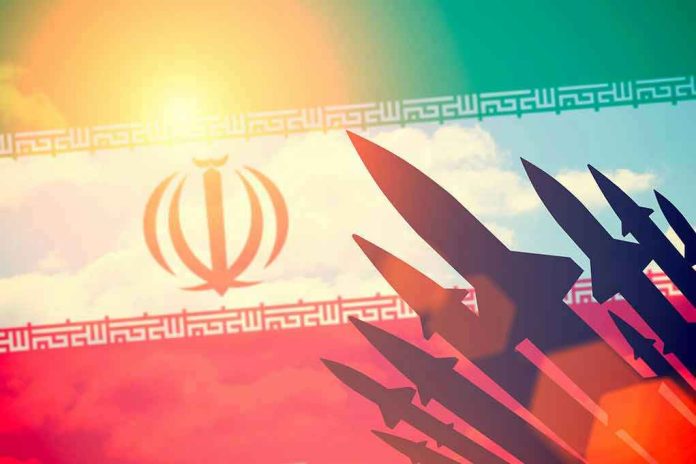
Tensions in the Middle East have reached a boiling point as 27 inmates from Tehran’s notorious Evin Prison remain at large following an Israeli airstrike.
At a Glance
- Israeli airstrikes targeted Evin Prison during Operation Rising Lion.
- 27 inmates escaped and are still on the run, raising public safety concerns.
- Amnesty International calls for a war crimes investigation.
- The attack has intensified Israel-Iran tensions and drawn international condemnation.
Operation Rising Lion and Its Fallout
On June 23, 2025, the Israeli military launched an aggressive campaign known as Operation Rising Lion, targeting Iranian nuclear and military infrastructure. Evin Prison, infamous for its harsh conditions and housing of political prisoners, was not spared. Israeli missiles rained down, leaving destruction, death, and a chaotic prison break in their wake. Seventy-five inmates took the opportunity to flee during the chaos, but only 48 have been recaptured. The whereabouts of 27 remain unknown, sparking concerns over public safety and prison management.
Tehran’s judiciary quickly confirmed the casualties, reporting 71 dead, a figure slightly contested by local media who claim the number is closer to 80. Among the dead were prison staff, soldiers, inmates, and even visiting family members. The attack has been met with an uproar from human rights organizations, with Amnesty International leading the charge for an investigation into what they deem a deliberate attack on a civilian facility, a potential war crime.
Humanitarian and Legal Concerns
In the aftermath of the attack, Amnesty International’s call for accountability underscores the gravity of the situation. They argue that prisons are generally considered civilian targets and require a justifiable military rationale for any assault. Despite Israeli officials boasting about the strike on social media, no credible evidence has surfaced to support claims that Evin Prison was being used for military purposes. The attack has reignited scrutiny on Iran’s treatment of prisoners and the deplorable conditions within Evin, often described as a place of ‘slow death’ by survivors.
The international community is watching closely as the events unfold. The potential for this incident to set a legal precedent for prosecuting war crimes is significant. Should the investigation confirm the attack as a deliberate assault on a civilian facility, the ramifications could be far-reaching, affecting future military engagements and international law interpretations.
Escalating Regional Tensions
The airstrike has further strained the already volatile relationship between Israel and Iran. This marked escalation has increased fears of further military actions in the region, with both sides trading barbs and bolstering defenses. Within Iran, the attack could serve as a rallying cry for the government to consolidate power and justify crackdowns on dissenters, potentially stoking anti-Israel sentiment among the populace.
For the international community, the strike and subsequent prison break have prompted a renewed call for diplomatic interventions to prevent a full-scale war. The humanitarian crisis resulting from the attack, with prisoners displaced and families mourning lost loved ones, demands urgent attention and resolution.
Sources:
Amnesty International report (July 21, 2025)
Anadolu Agency documentation of damage





